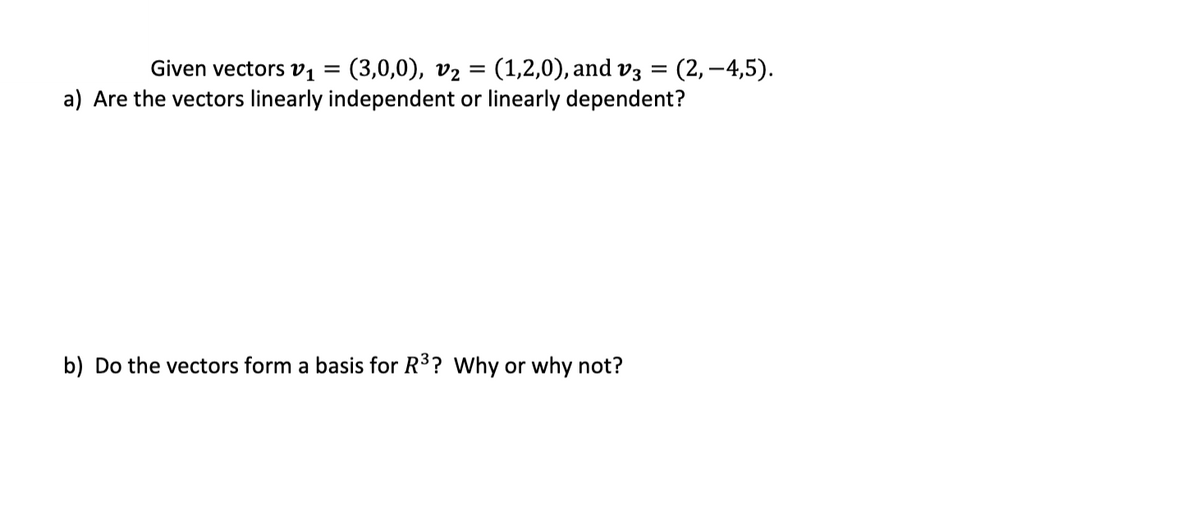Given vectors v1 = (3,0,0), v2 = (1,2,0), and v3 = a) Are the vectors linearly independent or linearly dependent? (2, –4,5). b) Do the vectors form a basis for R³? Why or why not?
Given vectors v1 = (3,0,0), v2 = (1,2,0), and v3 = a) Are the vectors linearly independent or linearly dependent? (2, –4,5). b) Do the vectors form a basis for R³? Why or why not?
Linear Algebra: A Modern Introduction
4th Edition
ISBN:9781285463247
Author:David Poole
Publisher:David Poole
Chapter3: Matrices
Section3.5: Subspaces, Basis, Dimension, And Rank
Problem 45EQ
Related questions
Question

Transcribed Image Text:(1,2,0), and v3
(3,0,0), v2
a) Are the vectors linearly independent or linearly dependent?
Given vectors v1
(2, –4,5).
%D
b) Do the vectors form a basis for R3? Why or why not?
Expert Solution
This question has been solved!
Explore an expertly crafted, step-by-step solution for a thorough understanding of key concepts.
Step by step
Solved in 3 steps with 3 images

Knowledge Booster
Learn more about
Need a deep-dive on the concept behind this application? Look no further. Learn more about this topic, advanced-math and related others by exploring similar questions and additional content below.Recommended textbooks for you

Linear Algebra: A Modern Introduction
Algebra
ISBN:
9781285463247
Author:
David Poole
Publisher:
Cengage Learning

Elementary Linear Algebra (MindTap Course List)
Algebra
ISBN:
9781305658004
Author:
Ron Larson
Publisher:
Cengage Learning

Algebra & Trigonometry with Analytic Geometry
Algebra
ISBN:
9781133382119
Author:
Swokowski
Publisher:
Cengage

Linear Algebra: A Modern Introduction
Algebra
ISBN:
9781285463247
Author:
David Poole
Publisher:
Cengage Learning

Elementary Linear Algebra (MindTap Course List)
Algebra
ISBN:
9781305658004
Author:
Ron Larson
Publisher:
Cengage Learning

Algebra & Trigonometry with Analytic Geometry
Algebra
ISBN:
9781133382119
Author:
Swokowski
Publisher:
Cengage